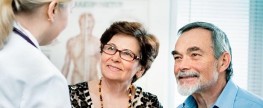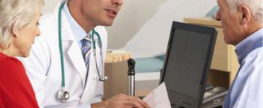
Your employer may soon let you have virtual medical visits, but should you? If you work for a big company, odds are you’ll soon be offered a new health benefit (if you haven’t been already): Telemedicine, sometimes called telehealth. It’s the ability to see a doctor on a video call or confer through text, email or by phone, rather than an in-person visit. The question is: Should you? I was floored to see in the National Business Group on Health’s Large Employers’ 2016 Health Plan Design Survey how much this benefit has grown lately and is expected to balloon. Soaring Growth for Telehealth In last year’s survey, 48 percent of employers made telehealth options available to employees in states where it was legal (more on that last part shortly), up from 28 percent the year before. But a stunning 74 percent of employers will offer telehealth in 2016, according to the new survey of 140 employers — mostly with 10,000 employees or more. Often, the firms contract out with telemedicine firms such as Teladoc, Doctor on Demand, MDLive, NowClinic and American Well. “Small and medium-sized employers are offering telemedicine, too,” said Brian Marcotte, president and CEO of the National Business Group on Health. “What you’re seeing is employers continuing to look for ways to engage employees and move to a consumer-centric model.” If employers expect employees to ask questions as medical consumers, Marcotte added, they need to offer more consumer services. “Telehealth neatly fits into that,” he said. And these days, “consumers are starting to ask for it,” said Jon Linkous, president of the American Telemedicine Association. “Health care is a late adopter of technology, but once it’s proven, it’s a permanent change.” Right now, there’s growing buzz over...






